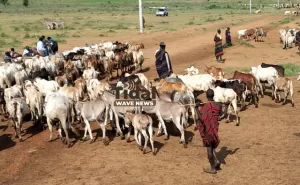
Arnold Ageta
West Pokot is a Pastoral County found in the North Rift part of Kenya. It is popularly known for cattle rearing as their main source of income.
Unfortunately, when drought knocks their doors, they are forced to move from one place to another in search of pasture and water for their cattle.
Women and children, people living with disabilities and the elderly remain behind to face the fangs of drought.
According to a study by Crawn Trust, a community advocacy and awareness organization, 70 percent of land in West Pokot has been affected by drought.
This condition compels the community to relocate to other areas in search of pasture and water where some members of the community meet their death. Those who are lucky, they return home with few or no cattle making their wives widows without any source of income.
I spend more than 4 hours to reach Kosholo village in Masol Ward in West Pokot. It is here that I meet Ms. Cheptakal Angelei, 40, a mother of eight children.
She tells me that prolonged drought forced her husband to move from their home to look for pasture for their livestock.
‘‘It is now ten years since my husband left home and has never come back. I do not know where he is,’’ she regrets.
She adds that her husband left her with a three months pregnancy. She gave birth to a child who does not know who the father is to date.
‘‘When the drought struck, he left home. Am told all the cattle died and feared to come back home,’’ he regrets.
Ms. Angelei has been forced to look for alternative means of providing for her eight children.
‘‘I hawk tea and porridge for daily subsistence and raise school fees for my children. When my children get sick I bear the medical bill burden alone with no one to depend on moreover business is very low nowadays. I am straining a lot,’’ she decried.
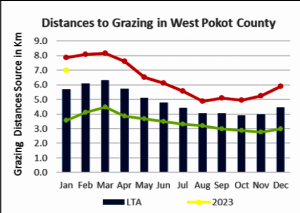
One kilometer from Ms. Angelei’s home is the home of Ms. Jane, 39, whose husband left 15 years ago. Ms. Jane has 10 children who miss their fatherly love, care and protection at home.
Her husband left home for Turkana County in search of pasture for their cattle but has since not returned home.
‘‘When drought hit this area, my husband with his colleagues left with cattle and goats. He instructed me to take care of the children and promised to come back. To date he has not come back home,’’ he says with tears in her eyes.
She adds that when the drought persisted killing all his livestock, the husband vowed not come home. He did not want to watch his children die of hunger due to prolonged drought.
Like Ms. Angelei, Ms. Jane engages in selling tea and porridge to quench her thirst to educate her ten children.
Human activities are the main contributors of climate change. The effects of climate change sting women and children most.
Water is life and everyone has a right to it. Whenever drought comes, people in arid and semi-arid areas are forced to walk hundreds of kilometers to look for water to quench their thirst.
Cutting down of tree and rearing large number of livestock in the same place for a long period of time contributes to the degradation of the environment.
West Pokot Chief Executive Committee Member (CEC) for Agriculture and Livestock Wilfred Longuronyang has urged residents of West Pokot to plant drought resistant crops to mitigate effects of climate change.
‘‘I am asking people to accept to grow drought resistant crops to get food. I also appeal to women to look for alternative sources of income like planting vegetables,’’ he pleaded with them.
Neighboring West Pokot to the east is Baringo County. In Kiptorongon village, Kasiela location, I meet Ms. Everline, 36, a widow, breast feeding her six months old baby.
The baby did not have a chance of meeting her father. Her father died on his mission to look for pasture and water for his livestock.
‘‘My husband left early one morning with one of my sons to look for pasture and water for the cattle because of the drought. In the field, my husband was shot dead by bandits, livestock stolen…,’’ she sobbed forcing us to halt the interview for a while.
‘‘Fortunately my son escaped unhurt and brought us the bad news,’’ she said crying.
After a long silence, we continued with the interview.
The body of her husband was found six days later with the help of the police and area assistant chief.
Ms. Everline was left with the responsibility of taking care of her six children.
‘‘I went back home with my six children. I did not have anything to feed my children with. My husband was killed an all our livestock which included goats and sheep were stolen,’’ she recalls the painful experience.
She now sells vegetable at a local centre to earn a living.
I had a chance to talk to Henry Cheburet, her brother, who is leading an initiative of bringing women together in farming activities in a move to offer alternative sources of income as opposed to livestock rearing.
‘‘I ask the government to provide water to the people by digging boreholes and constructing dams. Women also need to be sensitized and empowered on farming activities and other alternative sources of income,’’ he said.
He advises that men should also embrace keeping of a small and manageable number of animals.
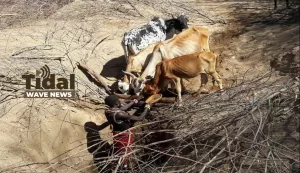
Insecurity along the West Pokot County border has contributed to the increased cases of deaths of the locals who move from one place to another to look for pasture and water for their livestock.
Many of them are killed and their livestock stolen leaving their women and children languishing in dire poverty.
Ms. Christine Kandie, a human rights activist working with Endorois Indigenious Women Empowerment Network in Baringo, claims that rampant women headed households in the area has made women direct their efforts in providing security to their families instead of using the same energy to engage in income generating activities.
‘‘Their minds are now occupied on how they can provide security to their families instead of productive work,’’ she said.
Pastoralists from West Pokot have also been moving their livestock to the neighboring country, Uganda during the dry season.
I crossed the border to Amudat district in Uganda. Amudat is approximately 100 kilometers from Kapenguria in West Pokot.
Here, I meet LC5 of Amudat Disrict, Jospeh Lobot, who is an equivalent of a Kenyan governor who confirms a 2-year prolonged drought.
‘‘Two years on, drought has been a big challenge to women who feed their families. As we speak now, people form Baringo and West Pokot have crossed the border to Amudat, Uganda to look for pasture and water for their livestock,’’ he confirmed.
This, he says, attracts a large number of livestock in Amudat than the area can accommodate and feed.
Further, he says that, the high number of livestock witnessed in Uganda has led, for the first time, to increased malnutrition of people in Amudat.
‘‘For the first time, Amudat became one of the Karamajong districts to record high cases of malnutrition due to the decrease in milk production in the district,’’ he confirmed.
The Uganda administration through the Amudat District, has started engaging the pastoral communities to solve border conflicts witnessed along the borders.
‘‘We have cross border projects where the communities have embraced ‘Feed the Future’ a project of SIKOM Peace Network, where community cross border resilience activities will be launched including water shed management,’’ he said.
SIKOM Peace Network is an organization working in West Pokot that is championing cross border resilience activities to foster peace and cooperation between the pastoral communities and mitigate effects of climate change.
The director of SIKOM, Jospeh Akaule, confirmed that they have started a ‘Drought Recovery’ project that will focus on both Kenyan and Ugandan side (Amudat district) and teach women on bee keeping and honey production to reduce cutting down of trees by women to burn charcoal.
‘‘To reduce cutting trees in the name of charcoal which directly affects our climate, we have introduce bee keeping as an alternative source of income generating activity for women,’’ he said.
Mr. Kaule has cited chicken rearing and family care skills as very important activities that women need to learn in the absence of their husbands.
‘‘We want men to leave a few animals at home when they move out in the search of pasture and water,’’ he said.
He advises the national government and the county government to set aside funds to ensure that livestock moved to Uganda are brought back when the drought comes to an end.
‘‘We established Peace Directorate with an aim of securing some funds to secure our animals when they cross borders,’’ he said.
West Pokot meteorological department indicate that Pokot North and Central Pokot sub counties are the most hit areas by the drought.
Catastrophic consequences of the recurrent drought in Kenya continue to get worse, leaving communities in dire need of humanitarian aid.
World Bank data shows that about 5.4 million people are projected to face high levels of acute food insecurity between March and June this year. Another 1.2 million people are likely to be in the emergency phase.
This latest projection highlights a 43 per cent increase of people facing high levels of food insecurity compared to the same period last year.
The women of Pokot are appealing to both the national and county government to initiate, support sustainable alternative economic activities and projects to enable residents make a living, preserve lives, and mitigate effects of climate change.

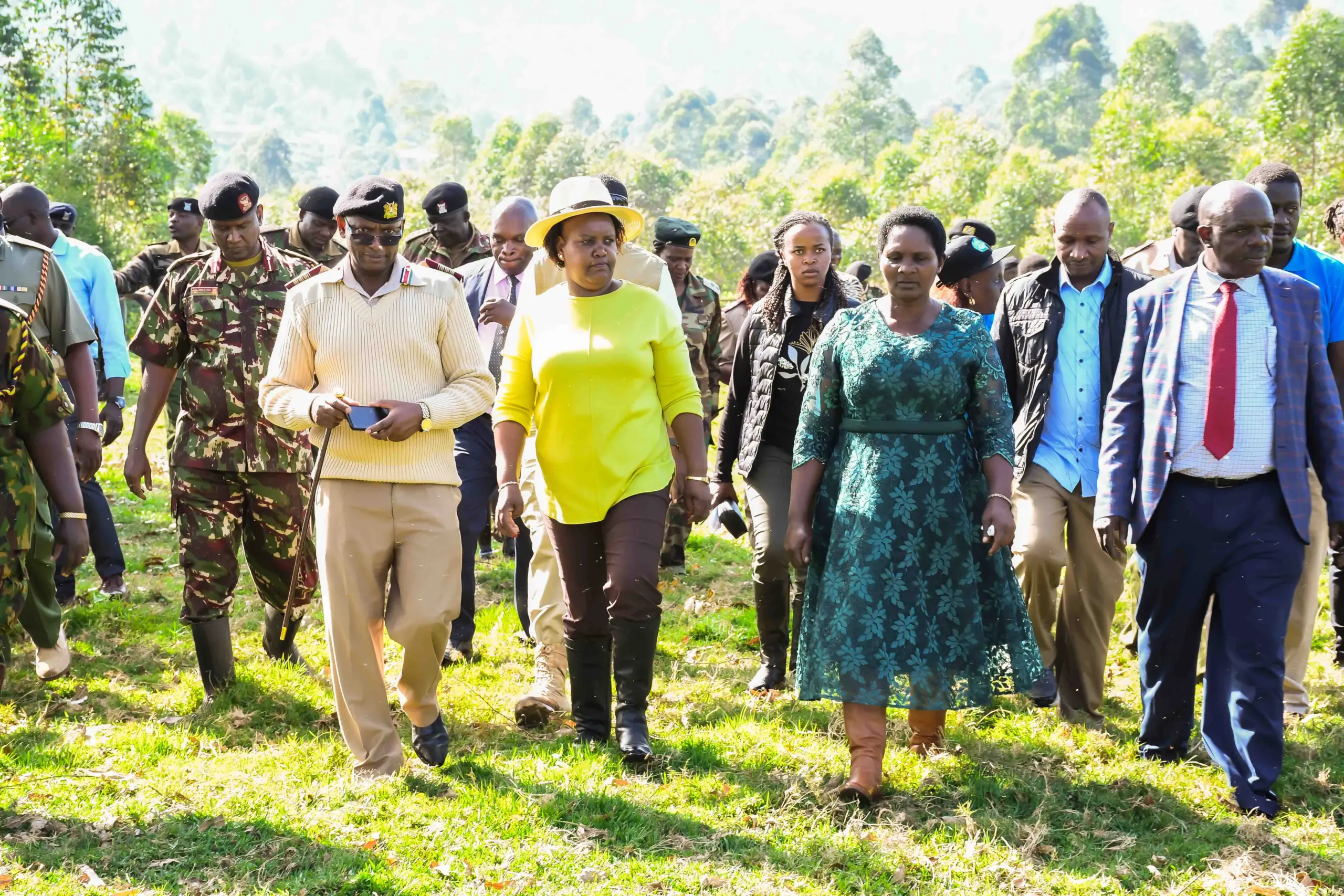
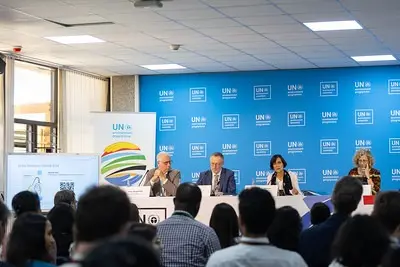
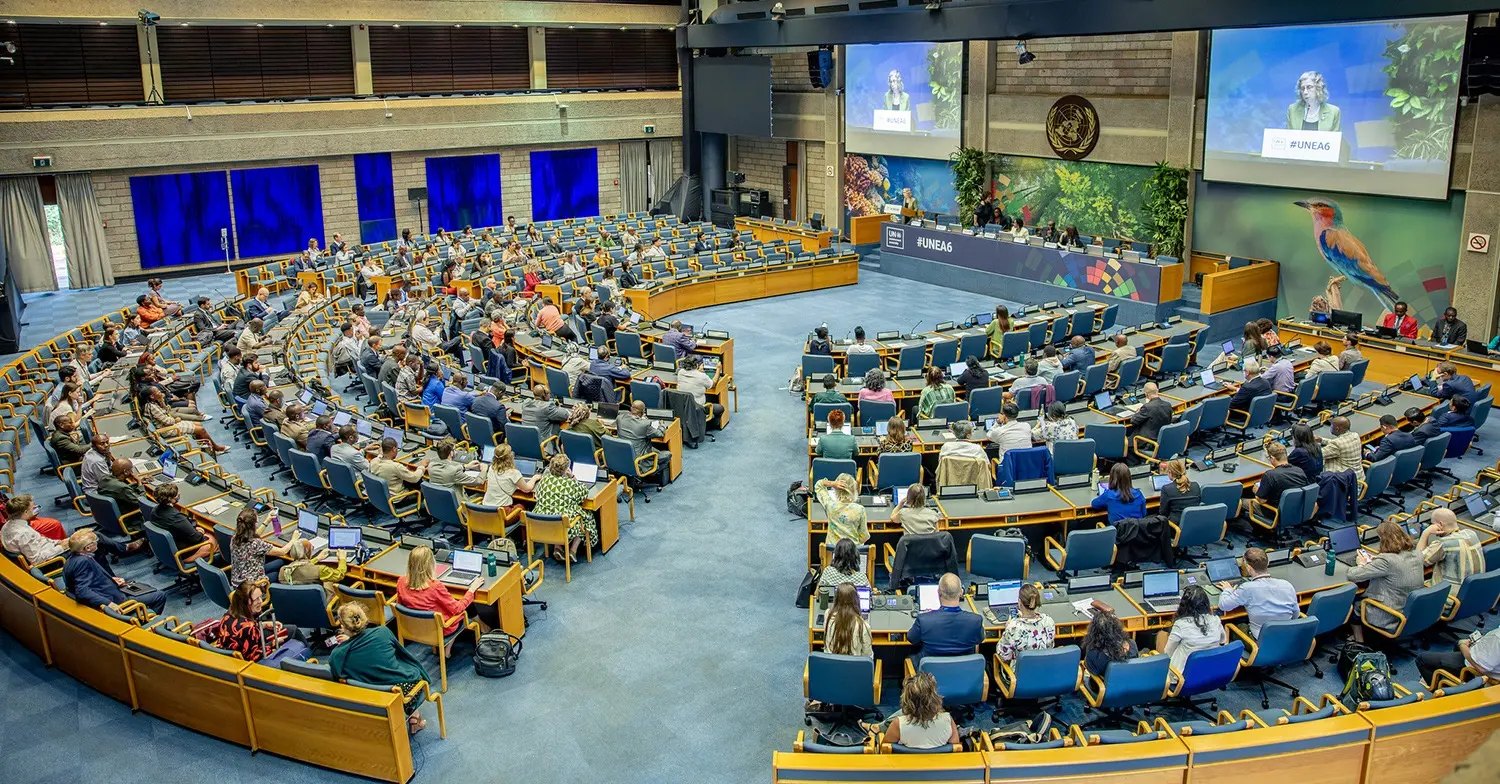
One thought on “The pangs of climate change in West Pokot”